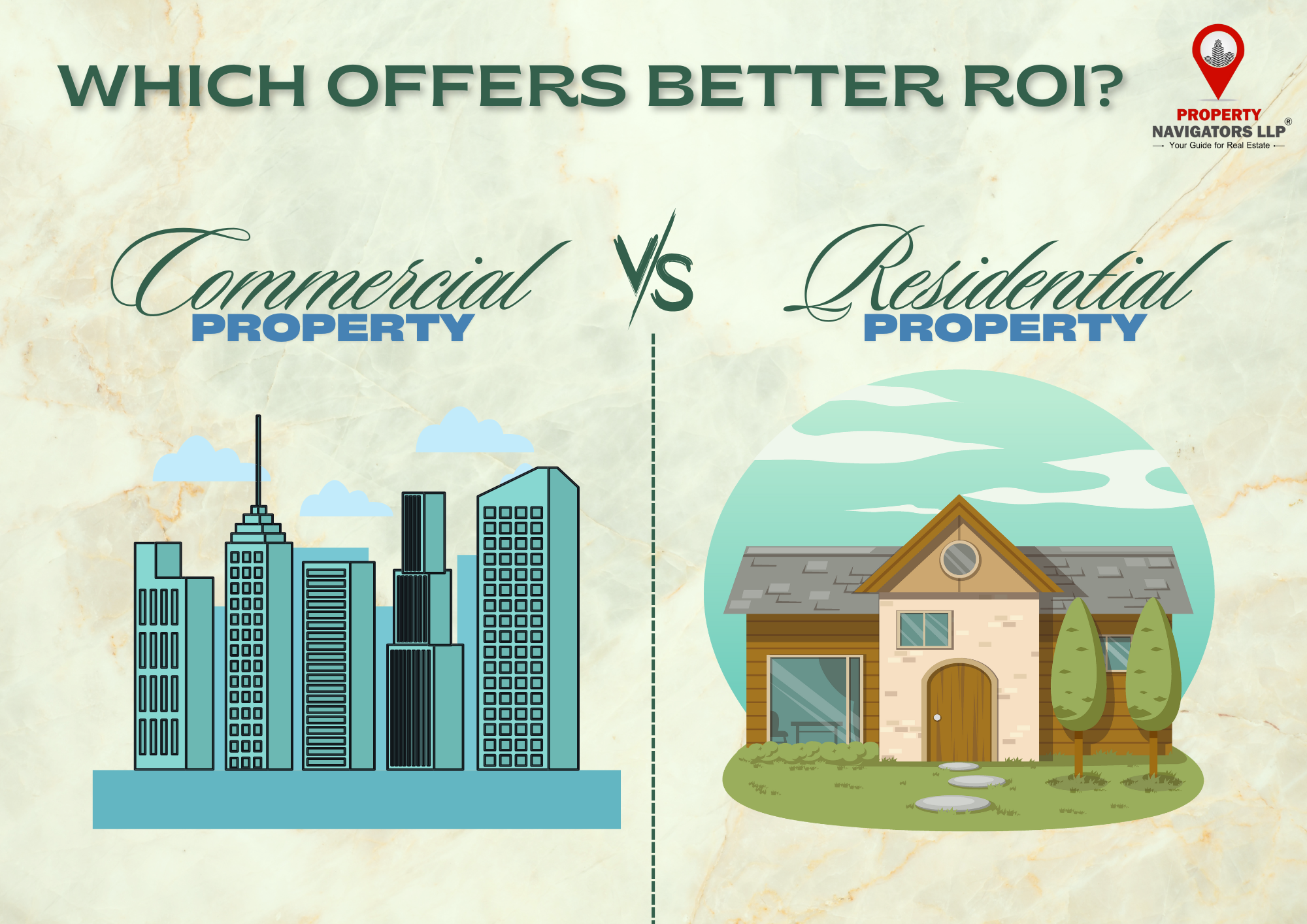Investing in real estate is one of the most reliable ways to build wealth—but one of the biggest decisions you’ll face early on is whether to put your money into residential or commercial properties. Both can deliver solid returns, but the path, risks, and rewards differ significantly. So, which type of real estate investment gives you a better return on investment (ROI)? Let’s explore.
Understanding the Property Types
Residential Properties include homes, apartments, and other living spaces. These investments are usually more familiar to first-time investors, as they often come with simpler purchase and management processes. People always need a place to live, which generally keeps demand stable.
If you’re exploring residential investment opportunities, browse our curated list of high-demand homes and apartments to get started.
Commercial Properties, by contrast, refer to buildings used for business purposes—offices, retail stores, warehouses, or industrial facilities. These properties typically require a higher upfront investment but have the potential to generate greater returns over time.
Discover premium commercial properties in thriving business zones by visiting our commercial listings page.
Key Differences in ROI Factors
1. Rental Income Potential
Residential properties tend to offer more consistent rental income due to ongoing housing demand. Tenants typically sign shorter leases, which allows for frequent rent adjustments in response to market changes.
Commercial properties, however, often have long-term lease agreements with businesses. While these leases take longer to secure, they can provide more stable, contract-bound cash flow over time—especially in prime locations.
2. Appreciation Over Time
Residential properties generally appreciate steadily, driven by local housing demand, neighborhood development, and regional economic conditions. The growth may be slower, but it’s usually more predictable.
Commercial properties can experience significant value increases, especially if the area develops into a commercial hub. Changes in infrastructure, demand for retail or office space, and zoning laws can all dramatically impact value.
3. Vacancy and Tenant Turnover
One of the advantages of residential real estate is lower vacancy risk. People tend to stay in rental homes for longer periods, and the need for housing remains fairly constant—even during economic downturns.
In contrast, commercial properties are more sensitive to economic cycles. During tough times, businesses may downsize, relocate, or shut down entirely—leaving your property vacant for extended periods if not managed proactively.
For NRIs, navigating property management and ensuring consistent rental income from afar can be complex. A dedicated NRI Desk can streamline the process, offering insights into low-vacancy regions and coordinating tenant and asset management efficiently.
4. Management and Operational Complexity
Residential investments often require more direct involvement—handling tenant queries, repairs, and regular maintenance. However, they can be easier to self-manage, especially if you own a single property or a small portfolio.
Property management services can significantly simplify the ongoing responsibilities of maintaining and operating residential investments, ensuring smoother tenant relations and efficient upkeep.
Commercial investments usually demand more professional oversight. With multiple tenants and larger spaces, you may need to hire property management firms to handle lease agreements, maintenance, and tenant coordination. While this adds to operational costs, it can also streamline the investment process.
So, Which Investment Is Better?
There’s no one-size-fits-all answer. If your goal is stable, hands-on income with lower entry costs, residential properties may be a better fit. They’re typically easier to manage and come with lower volatility.
However, if you’re aiming for higher income potential and are comfortable with a more complex management process, commercial properties can offer compelling rewards—especially when market conditions align in your favor.
Final Thoughts
Choosing between residential and commercial real estate comes down to your investment goals, risk appetite, and ability to manage the property. For many savvy investors, building a diversified portfolio with both property types is a smart way to balance risk and reward.
Whichever path you take, thorough market research and a clear understanding of your financial strategy are key to making a successful investment. If you’re ready to explore your options or need expert guidance, feel free to reach out.
Contact us today to schedule a free consultation and take the first step toward your ideal property investment.




